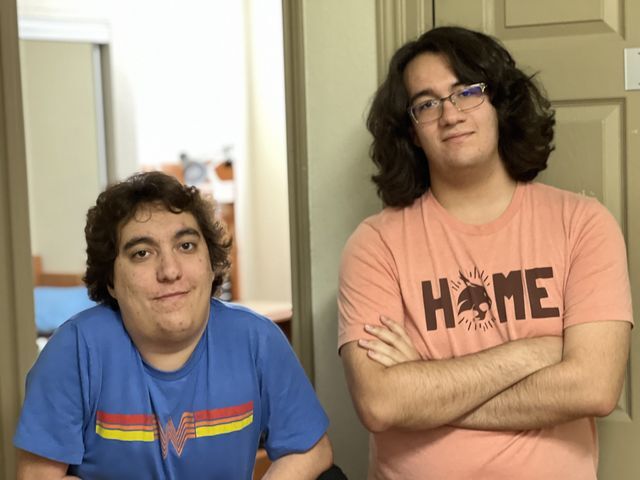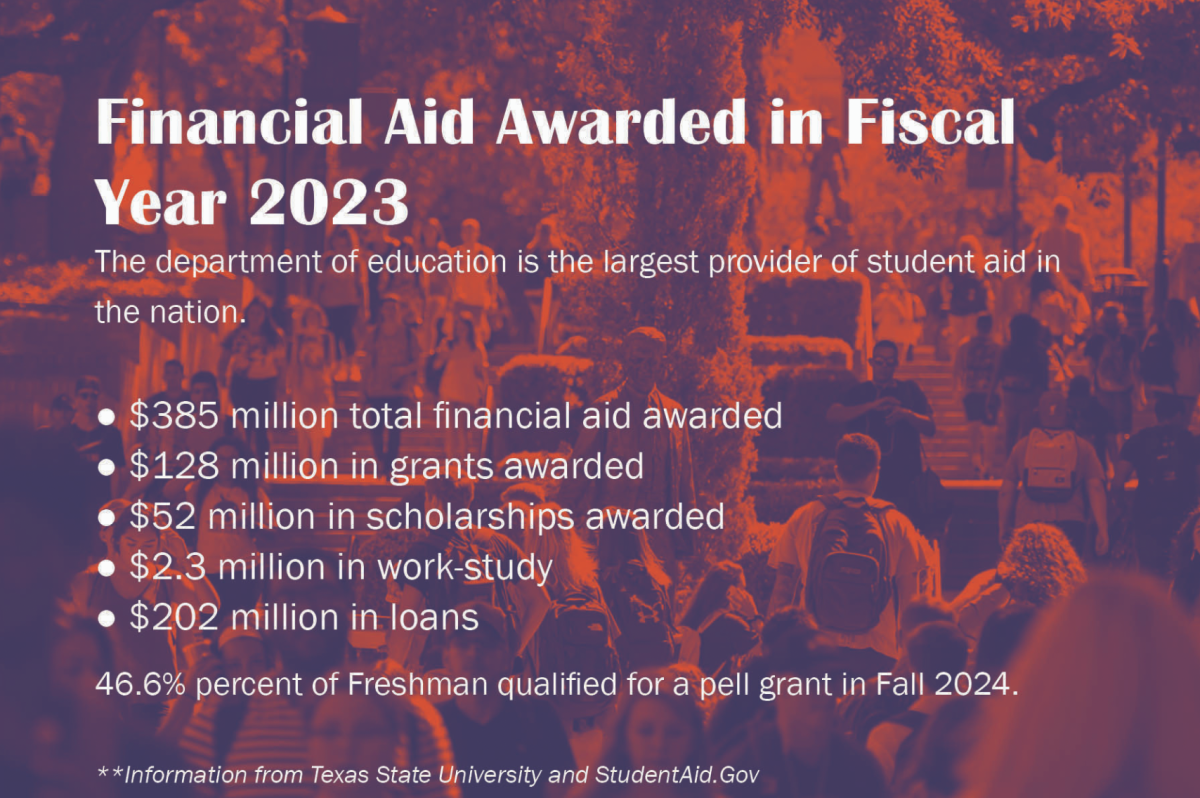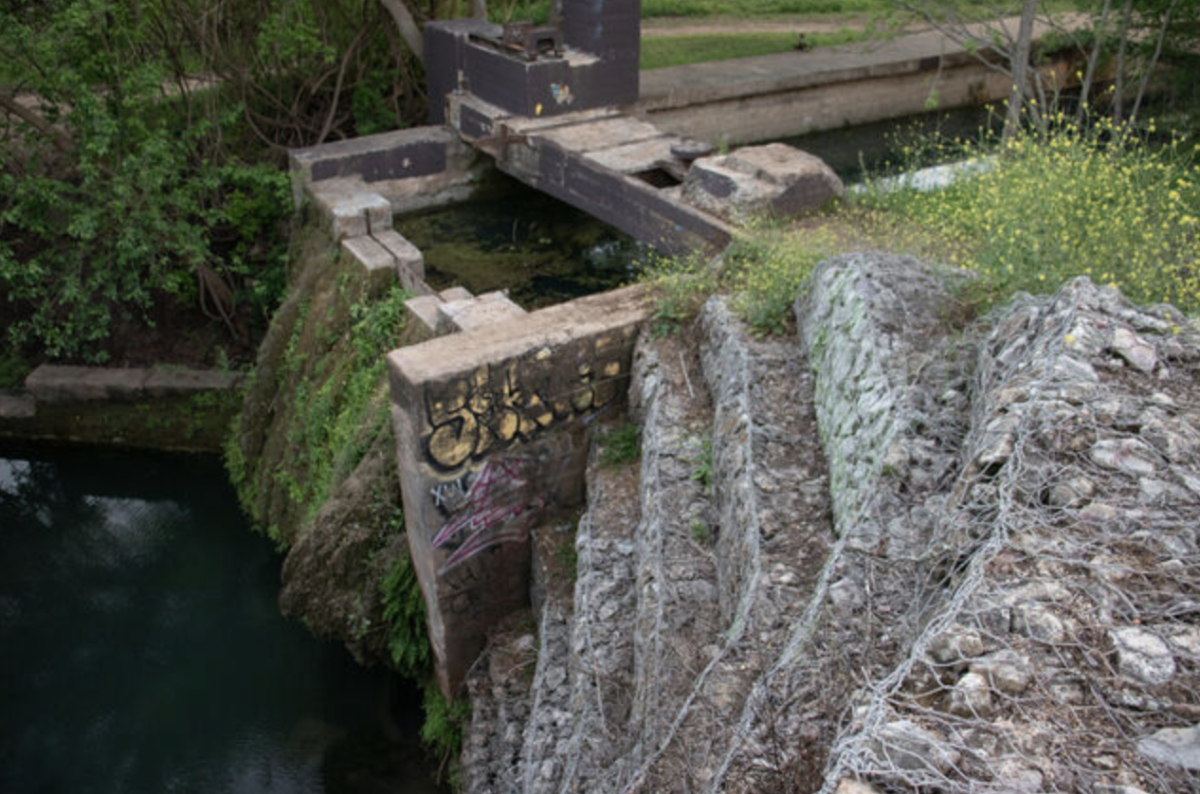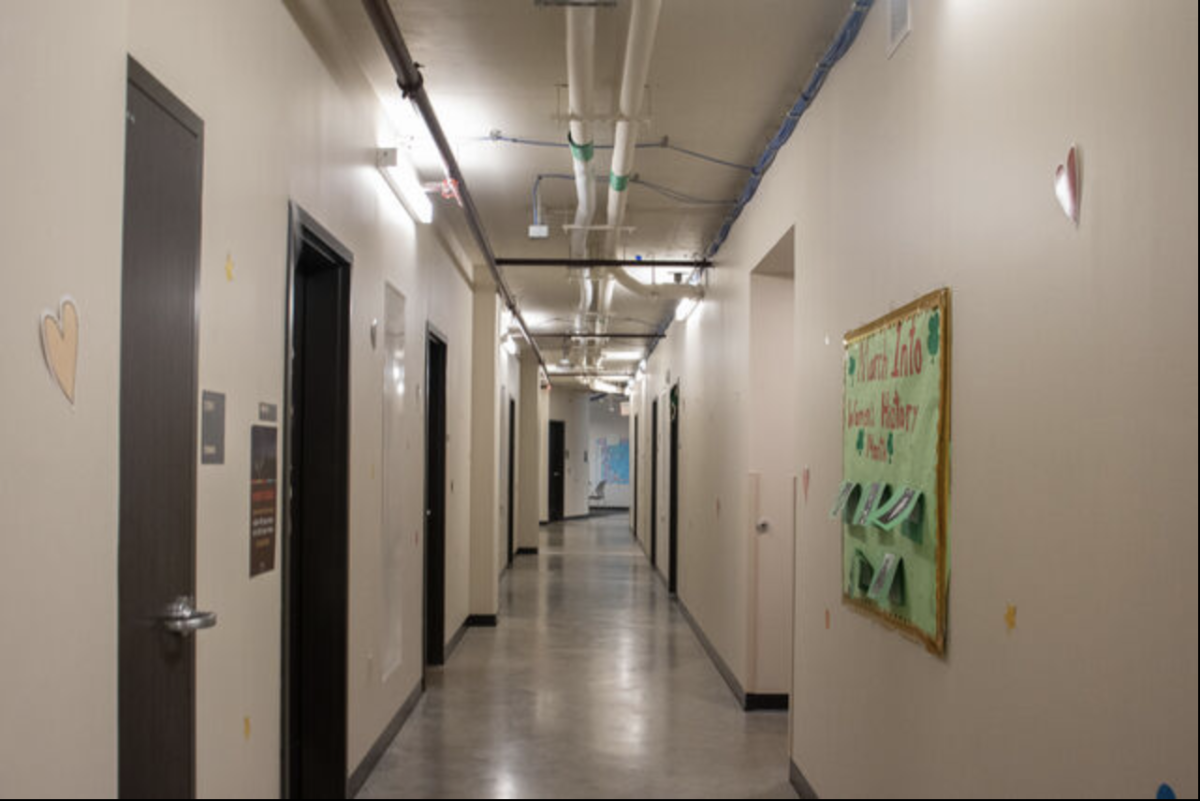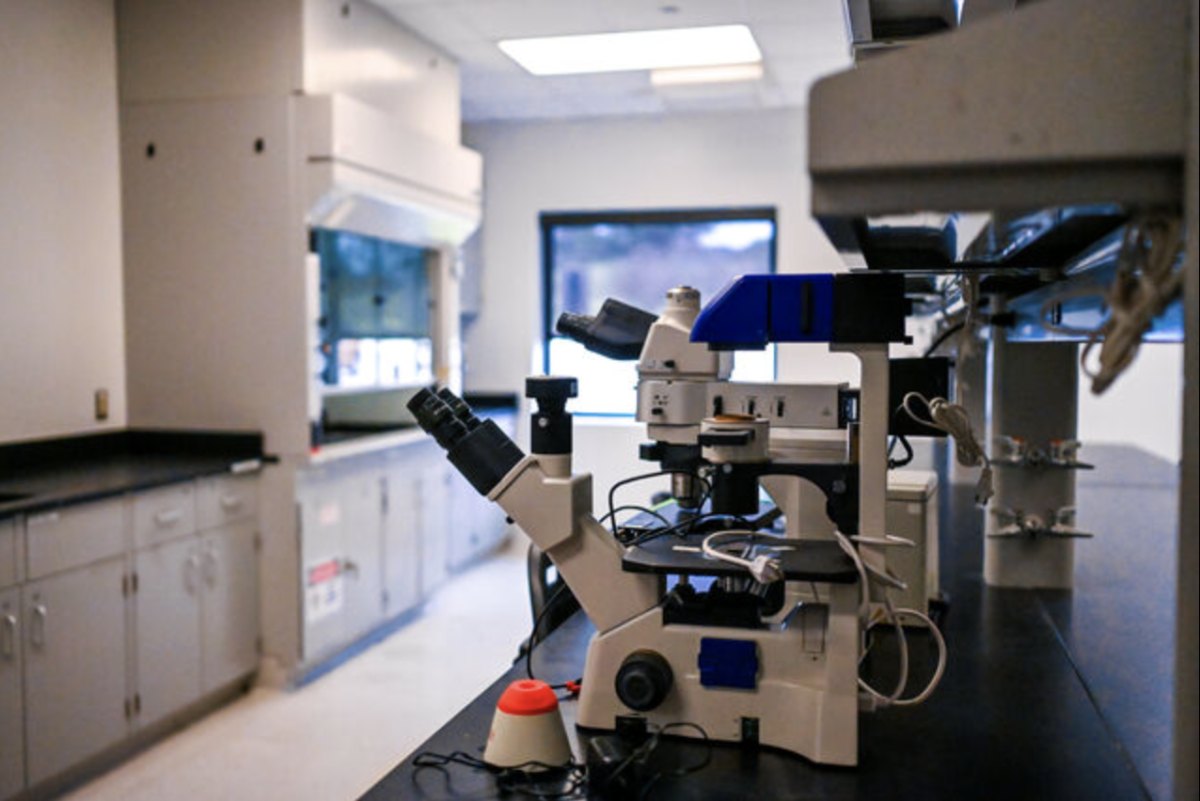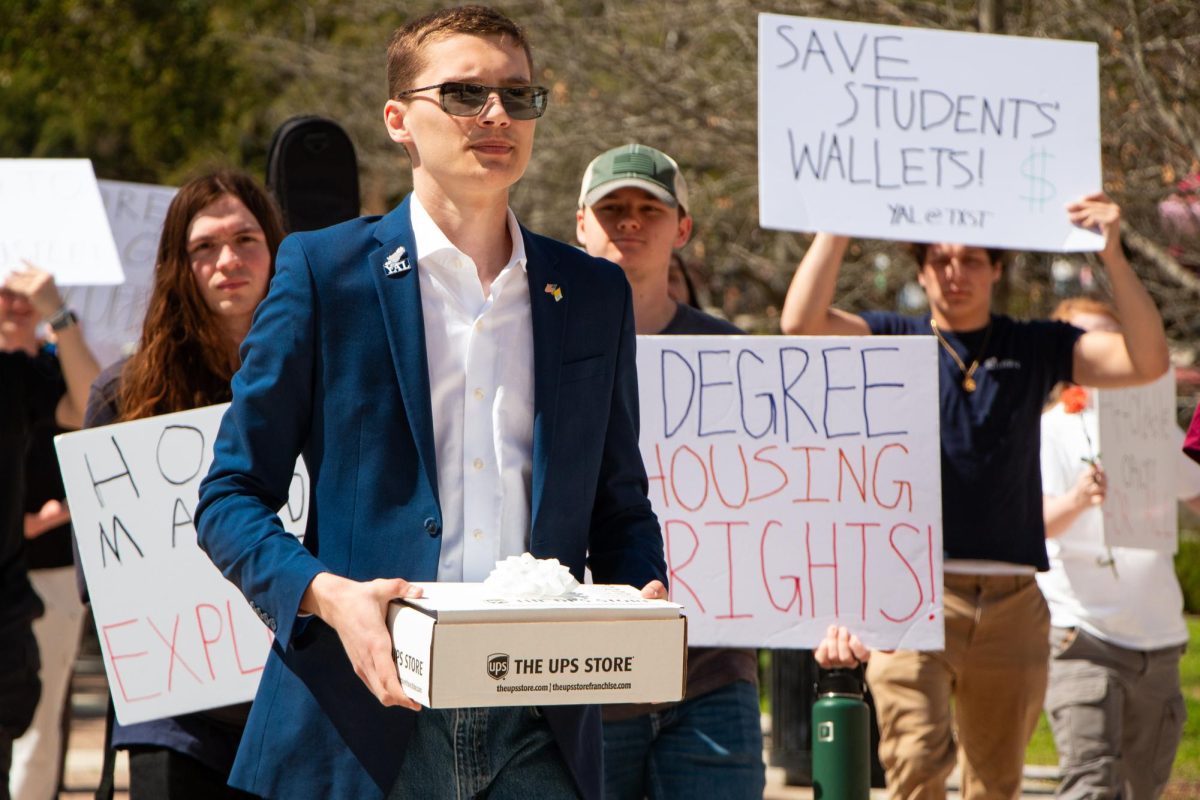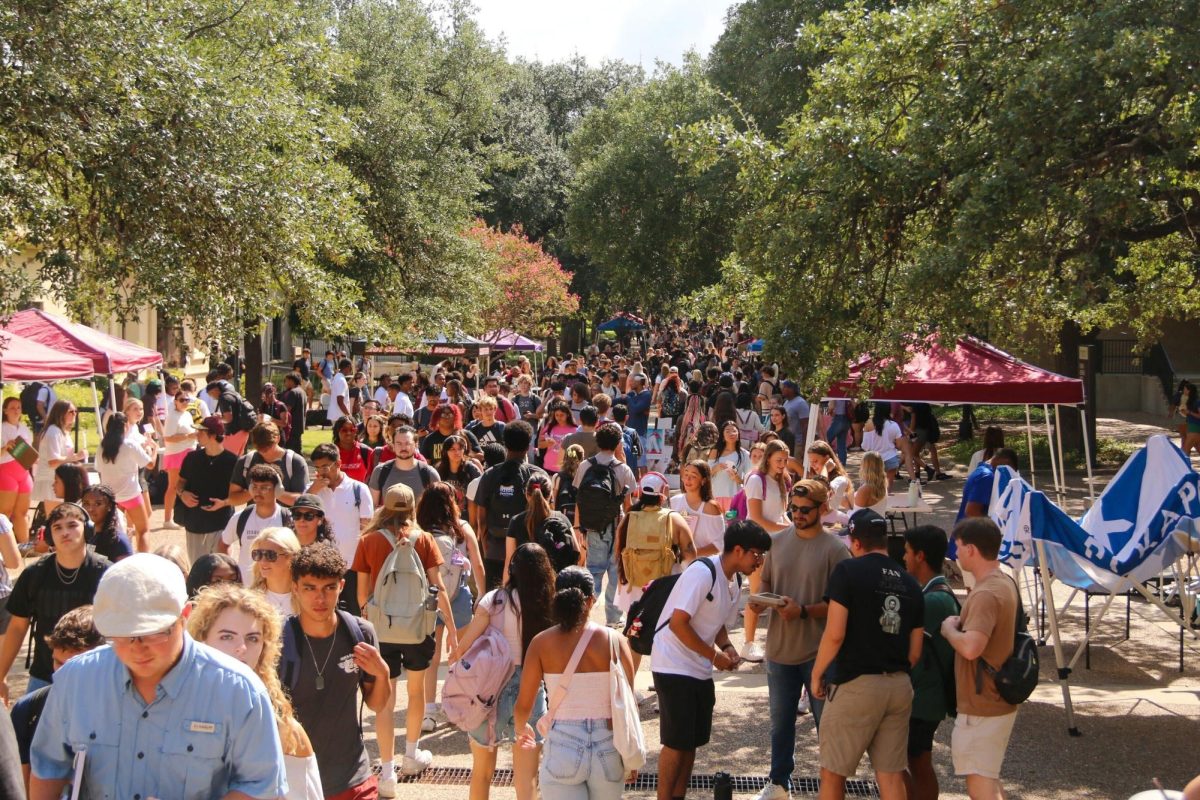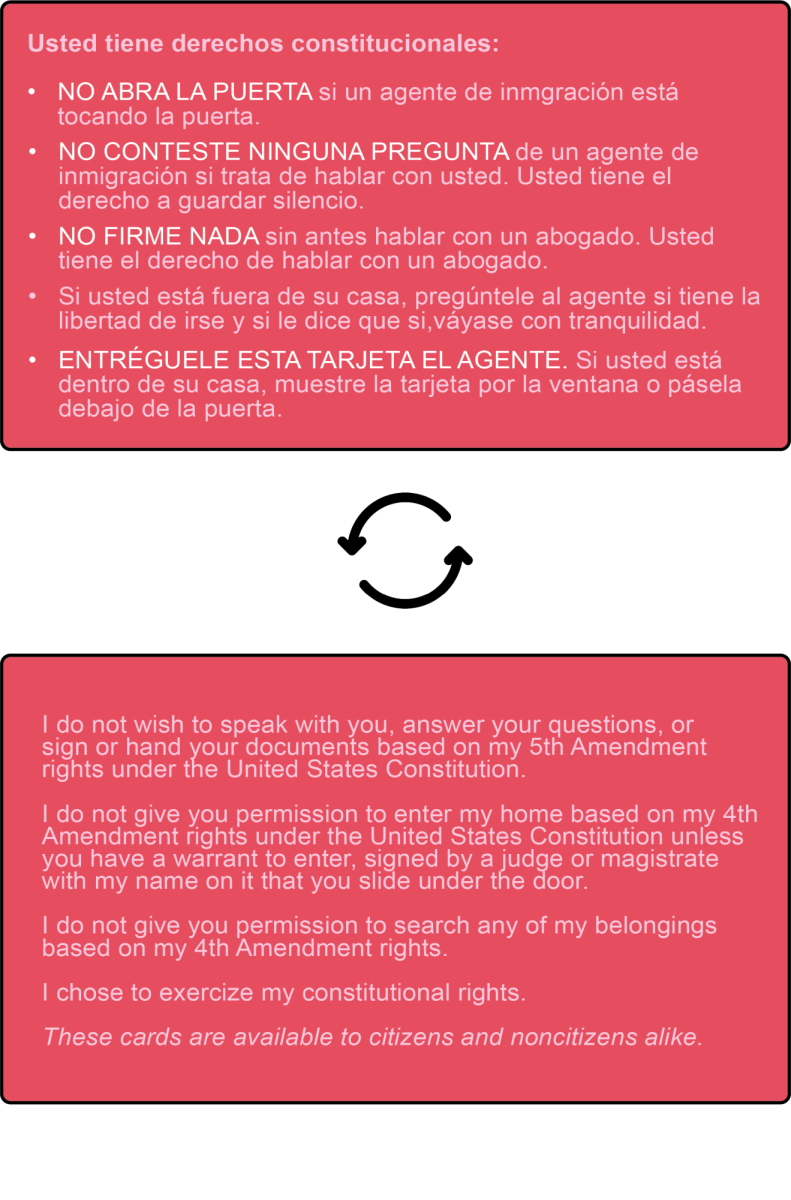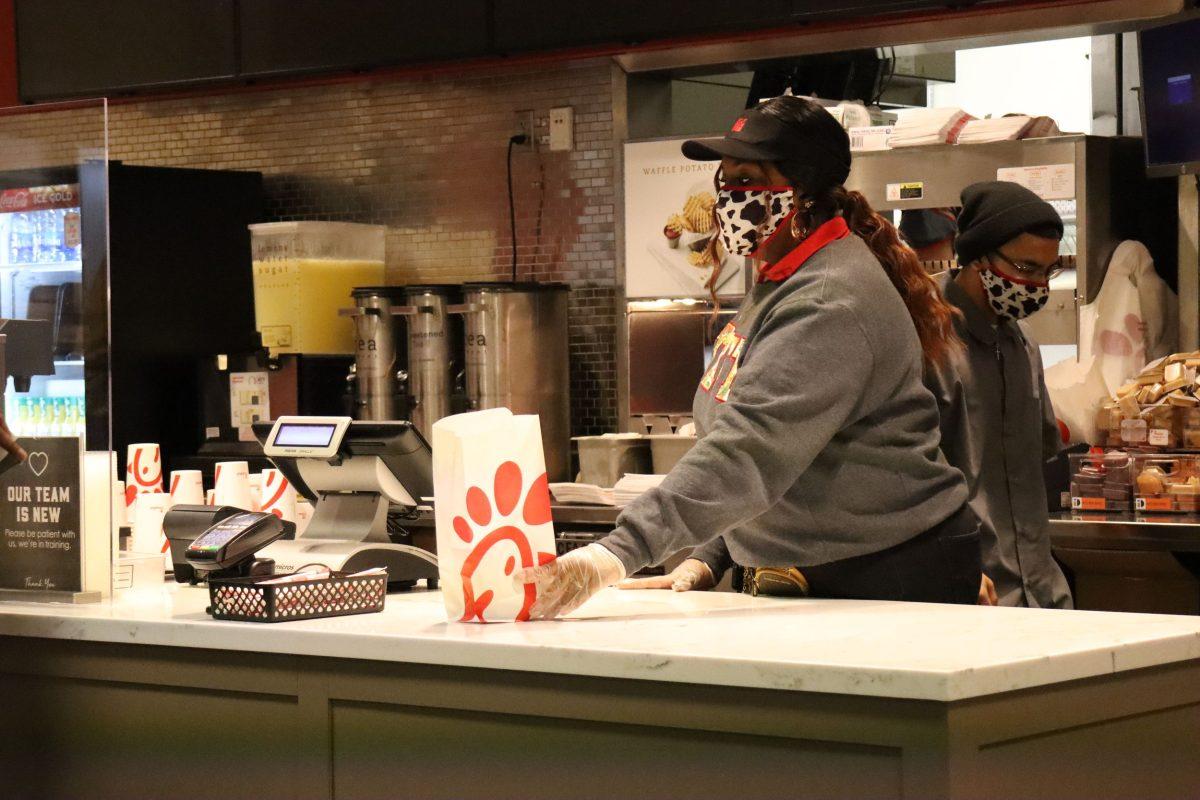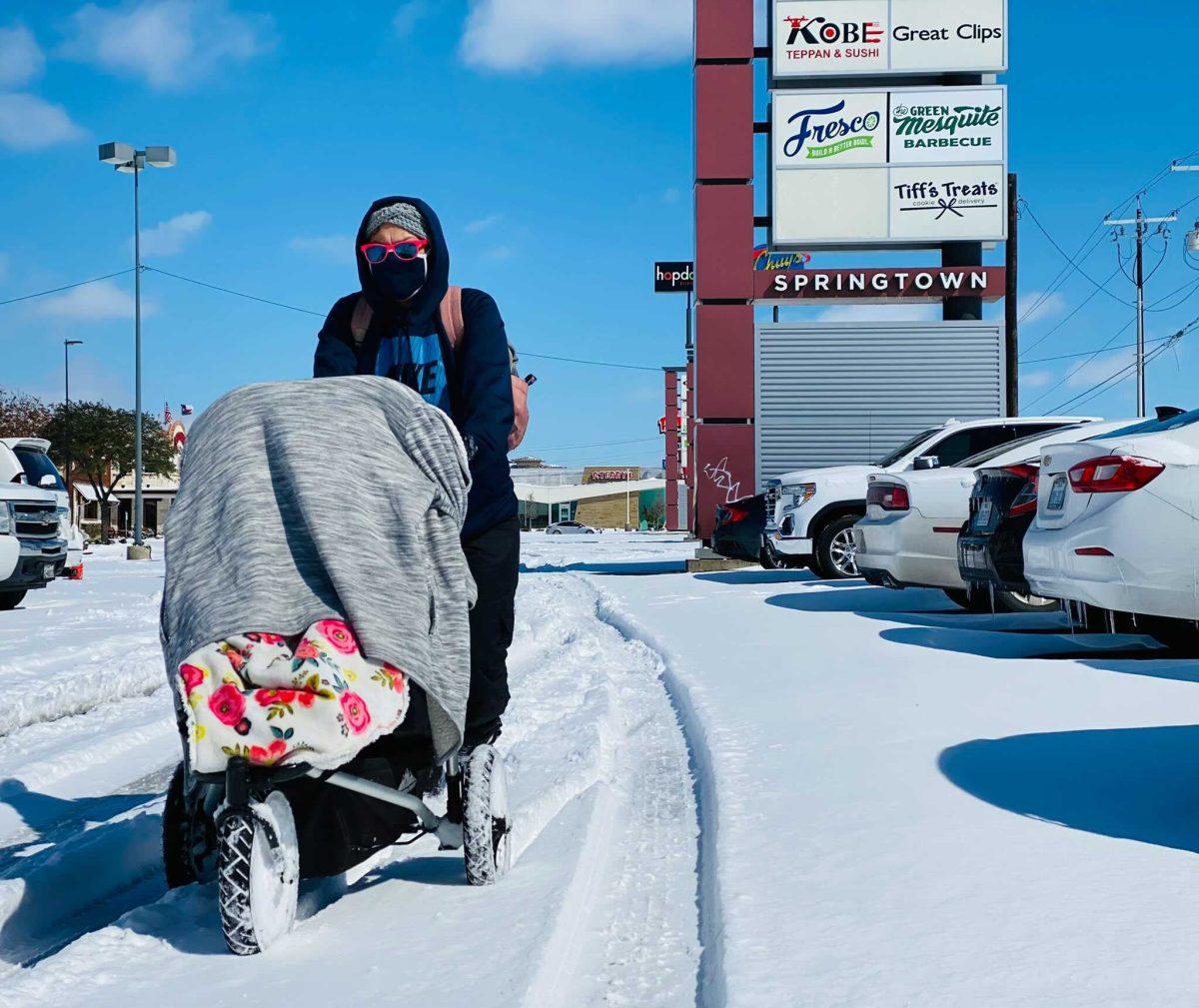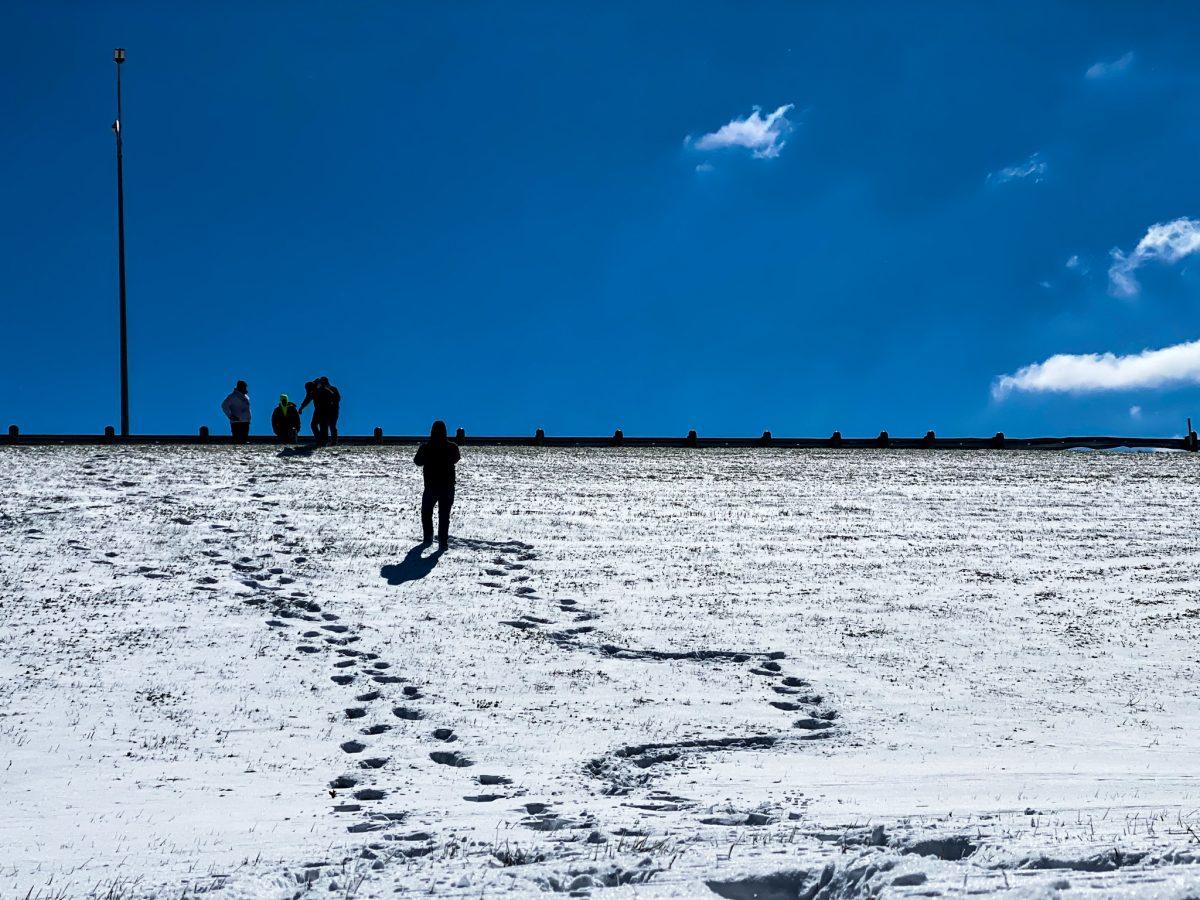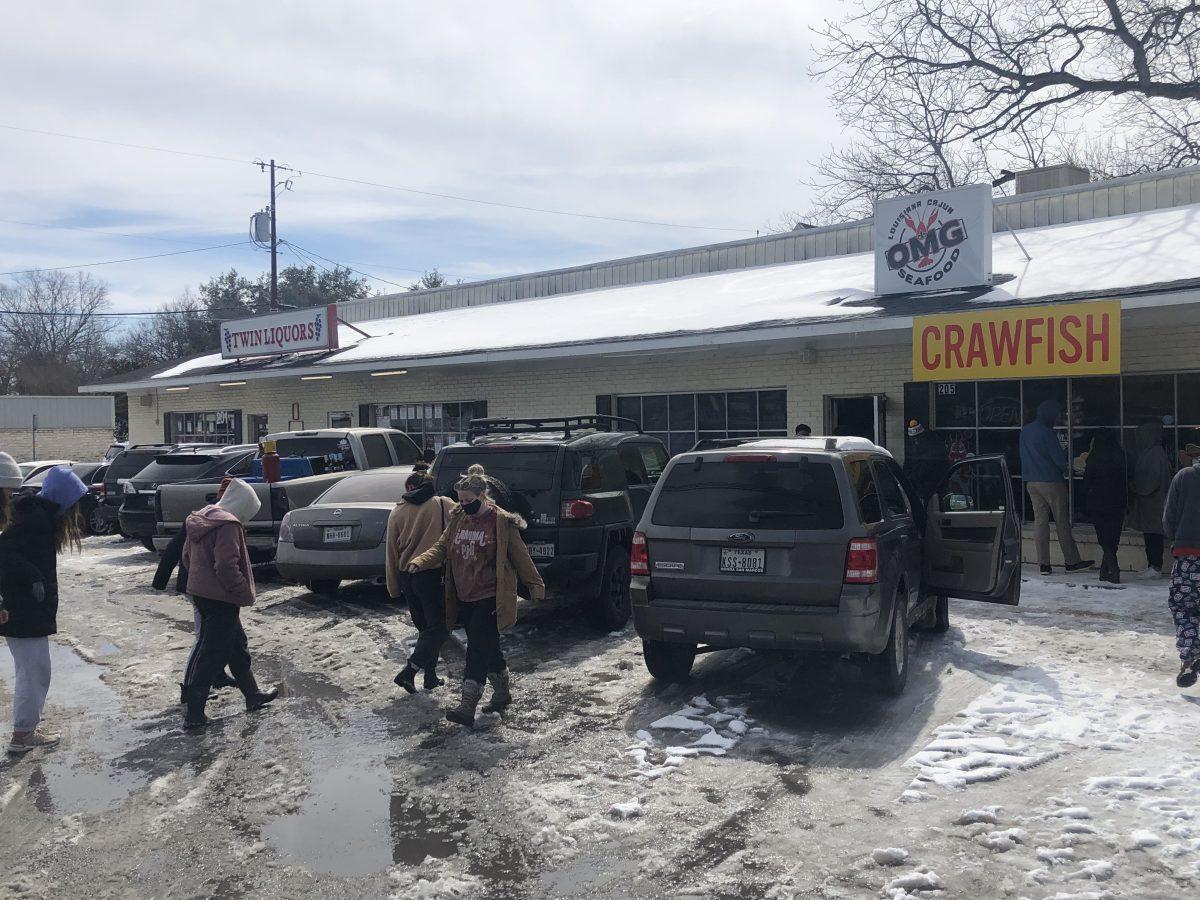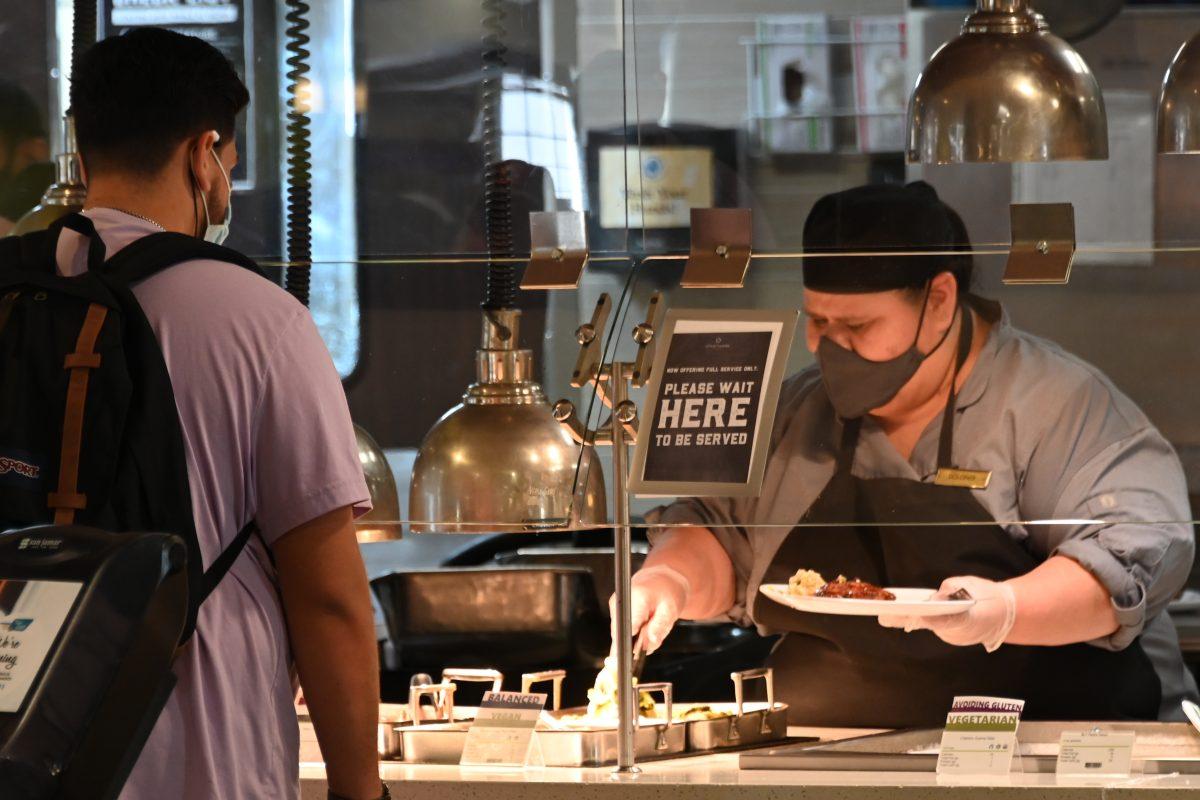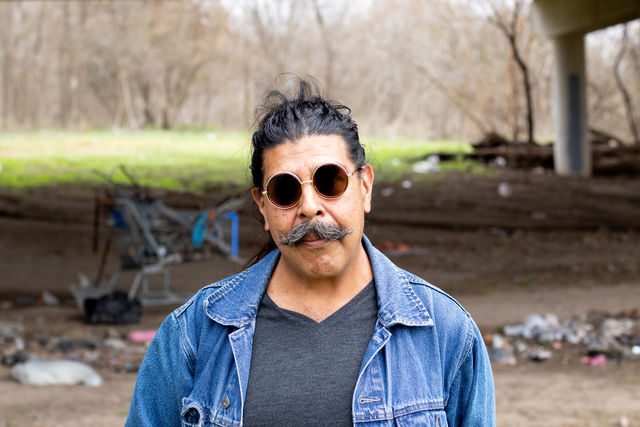With widespread power outages during the winter storms of February 2021 and February 2022, students living on campus were forced to travel through ice and snow if they wanted to use a meal swipe. After waiting through long lines in frigid weather, students crowded into the dining hall for a hot meal.
While getting food was no easy task for students living on campus, for students with disabilities, it was nearly impossible.
Sidney Naseralla lives with muscular dystrophy, a condition that affects the growth of muscle within his body. Gene mutations interfere with the production of proteins in his body, causing progressive weakness and difficulty moving.
The 23-year-old graduate student uses a walker and scooter to move, and without them, his motions are limited. Sidney has been living with this condition his whole life and is aided by his younger brother and roommate, Adam Naseralla.
During Winter Storm Uri in 2021, the ice on the roads and sidewalks made it too dangerous for Sidney to leave his dorm room at San Jacinto Hall. While he attempted to exit his dorm room once during the freeze to walk to Commons Dining hall the ice made his walker slick and difficult to safely move. Fearful of a fall or accident, Sidney was unable to get food.
Luckily, his brother, Adam, was able to get the two of them food when the weather became more bearable. Still, the two worry about what would have happened had Adam not been there.
Sidney’s inability to get his own food during the first winter storm led him to reach out to the Department of Housing and Residential Life (DHRL) and the Office of Disability Services (ODS). He asked for a plan to be set in place in the event that another natural disaster prevented disabled students from obtaining the resources they need.
When the winter storm of February 2022 hit San Marcos, Sidney was quick to reach out for help from the university, but received a disappointing response after the storm subsided. He was told his email would be forwarded to the director of ODS. Months later, however, the only response Sidney received was that the office would get back to him later.
When both Winter Storm Uri and this past February’s freeze hit, Sidney’s brother, Adam, didn’t feel comfortable leaving Sidney alone. Unable to eat any microwaveable food because the power was out, the two ate their last bags of chips and power bars and waited for the freeze to pass.
When the weather became safer, Adam was able to walk to Commons to get the two of them food. Sidney questions what he would do if his brother had not been there to make the trip to the dining hall, and what other students would do if they had no one to go for them. His request was that DHRL and ODS create a system to ensure disabled students have access to food during emergency situations like winter storms.
“I would like something of a plan, like if we could contact them so that they can bring food to dorms so [disabled students] can have hot food like everyone else. I feel that’s fair,” Sidney said. “We messaged [Texas State]. I still haven’t really gotten a response for like two months.”
Adam said he is frustrated with the university’s lack of a cohesive plan to get food from the dining halls to the rooms of disabled students during a freeze. The 20-year-old English junior is concerned about what would happen if he wasn’t there to help his brother.
“What if I decided to stay home that weekend? What if he was here on his own? The only food being offered was across campus in the freezing cold,” Adam said.
According to Bill Mattera, executive director of DHRL, if it is too dangerous to have students going to class during a freeze, then it is too dangerous for staff to be delivering food to them.
“The issue is always going to be the height of a storm. We’re not going to ask staff to go out into the weather, the same way we would want a student to go out,” Mattera said. “We let students know [about a freeze] at least 18 hours in advance to go over to the convenience store and grab stuff in your room.”
Director of ODS Gavin Steiger expressed his sympathy for any student that faced difficulties during the two winter storms but thinks the situation is more about the state-wide lack of preparation.
“I lived in Indiana. Indiana had a much better response to bad weather because we used to deal with it on a more routine basis. They had trucks that would go out and salt the road, or the big snowplows, things like that. In Texas, not so much,” Steiger said. “During the [Texas freeze], we had to recognize that there were some challenges for people in general.”
According to Steiger, the requests from Naseralla are considered a personal service, so they are outside of the university’s required accommodations.
“There is a difference between accommodation and personal service,” Steiger said. “Accommodations are things that the university would be required to provide by law to assist a student to have equal access to the university. Getting food to the individual might be more of a personal service because it’s not something that the university exists to do.”
Still, the Naseralla brothers worry about what they will do should another similar storm hit and cause difficulties obtaining food.
Categories:
Lack of winter storm preparation frustrates disabled graduate student
Arthur Fairchild, News Editor
April 27, 2022
Texas State business graduate student Sidney Naseralla (left) and English junior Adam Naseralla inside of their dorm room, Sunday, March 20, 2022, at San Jacinto Hall.
0
Donate to The University Star
Your donation will support the student journalists of Texas State University. Your contribution will allow us to purchase equipment and cover our annual website hosting costs.
More to Discover



